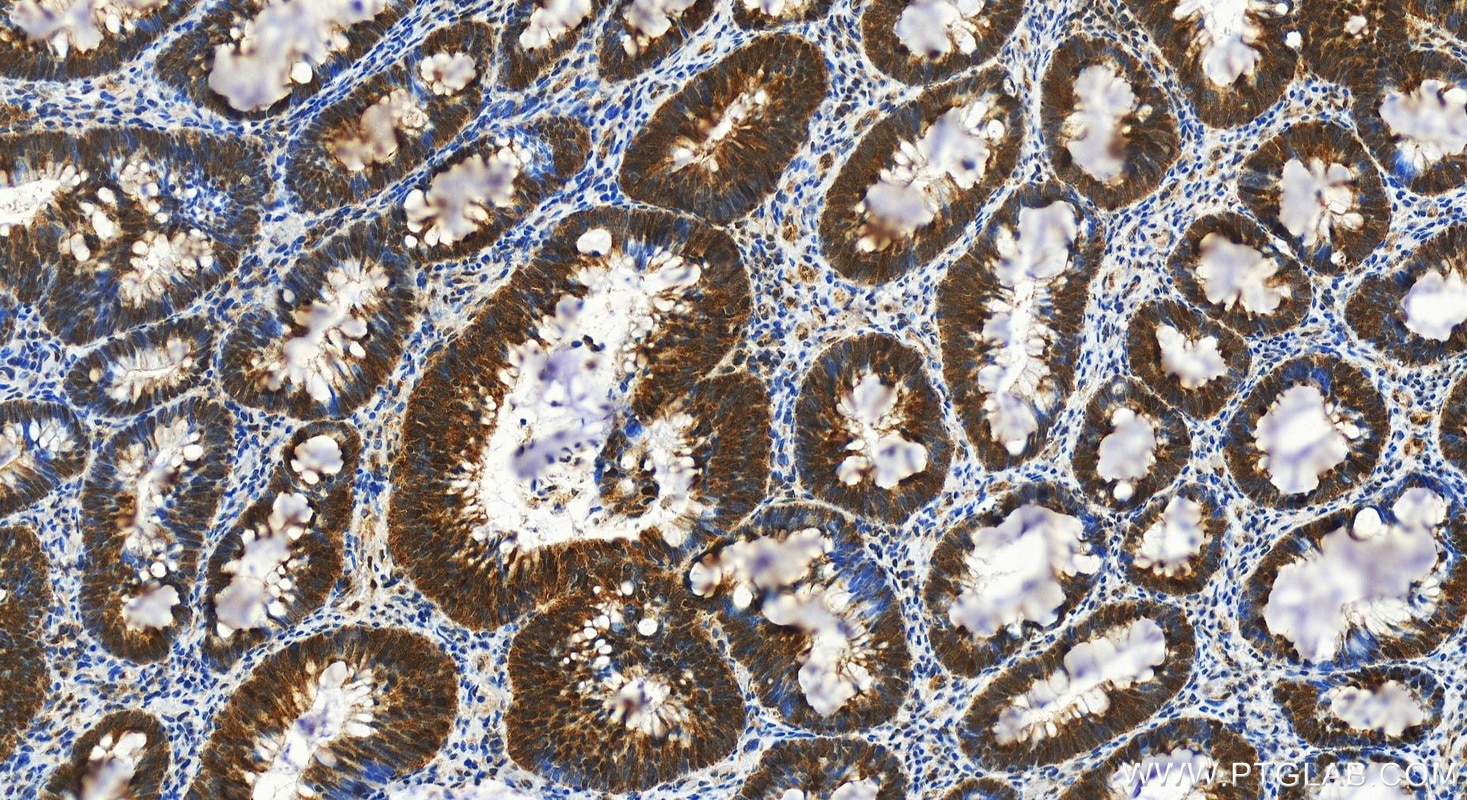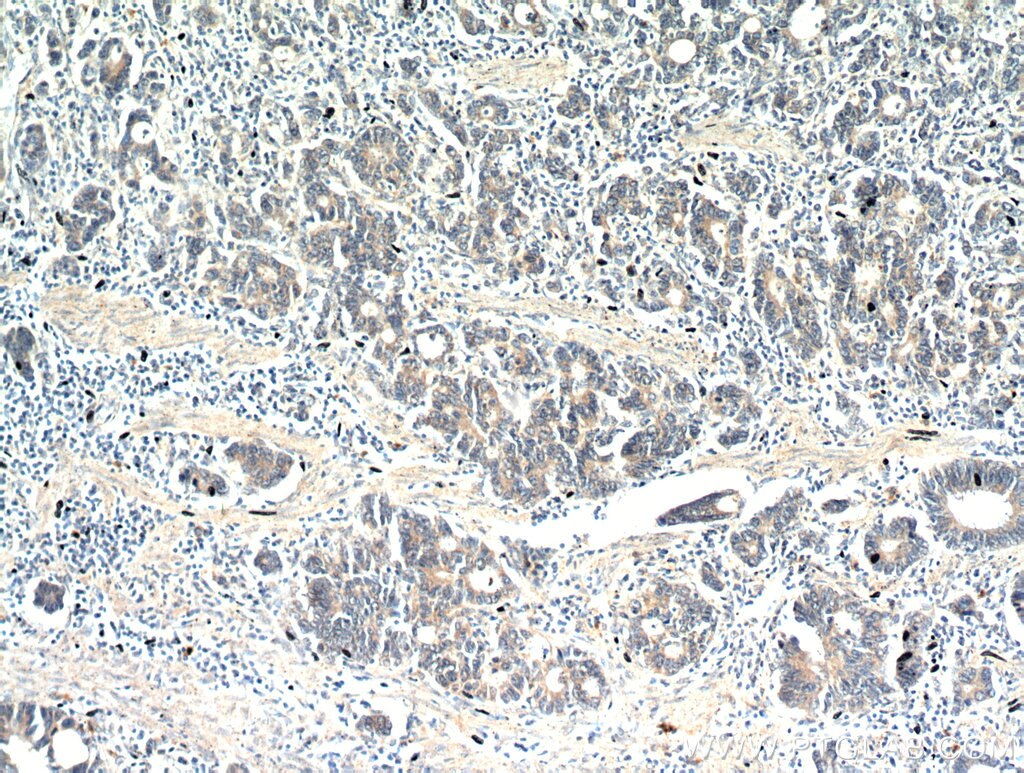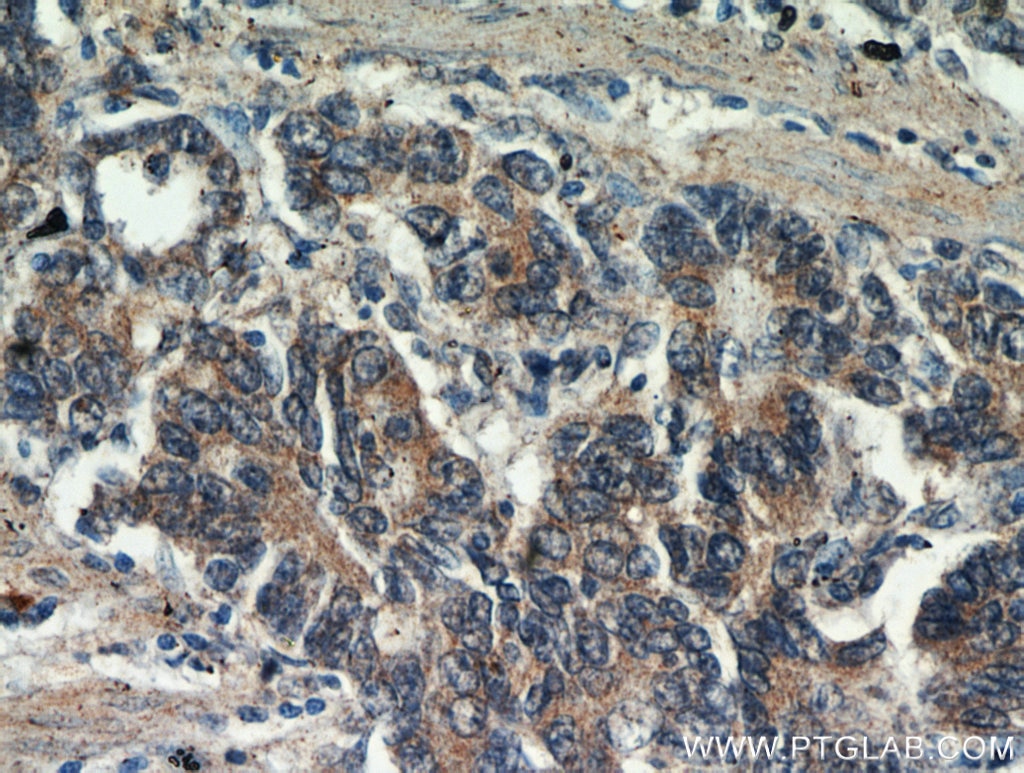Tested Applications
| Positive IHC detected in | human colon cancer tissue, human stomach cancer tissue Note: suggested antigen retrieval with TE buffer pH 9.0; (*) Alternatively, antigen retrieval may be performed with citrate buffer pH 6.0 |
Recommended dilution
| Application | Dilution |
|---|---|
| Immunohistochemistry (IHC) | IHC : 1:50-1:500 |
| It is recommended that this reagent should be titrated in each testing system to obtain optimal results. | |
| Sample-dependent, Check data in validation data gallery. | |
Published Applications
| IHC | See 2 publications below |
| IF | See 1 publications below |
Product Information
19496-1-AP targets CEACAM3-Specific in IHC, IF, ELISA applications and shows reactivity with human samples.
| Tested Reactivity | human |
| Cited Reactivity | human, mouse |
| Host / Isotype | Rabbit / IgG |
| Class | Polyclonal |
| Type | Antibody |
| Immunogen |
Peptide Predict reactive species |
| Full Name | carcinoembryonic antigen-related cell adhesion molecule 3 |
| Calculated Molecular Weight | 27 kDa |
| GenBank Accession Number | NM_001815 |
| Gene Symbol | CEACAM3 |
| Gene ID (NCBI) | 1084 |
| RRID | AB_2878582 |
| Conjugate | Unconjugated |
| Form | Liquid |
| Purification Method | Antigen affinity purification |
| UNIPROT ID | P40198 |
| Storage Buffer | PBS with 0.02% sodium azide and 50% glycerol, pH 7.3. |
| Storage Conditions | Store at -20°C. Stable for one year after shipment. Aliquoting is unnecessary for -20oC storage. 20ul sizes contain 0.1% BSA. |
Background Information
CEACAM3, also named as CD66D and CGM1, belongs to the immunoglobulin superfamily and CEA family. CEACAM3 is the major granulocyte receptor mediating recognition and efficient opsonin-independent phagocytosis of CEACAM-binding microorganisms, including Neissiria, Moxarella and Haemophilus species. CEACAM3 plays an important role in the clearance of pathogens by the innate immune system. It is responsible for RAC1 stimulation in the course of pathogen phagocytosis. The antibody is specific to isoform1 of CEACAM3.
Protocols
| Product Specific Protocols | |
|---|---|
| IHC protocol for CEACAM3-Specific antibody 19496-1-AP | Download protocol |
| Standard Protocols | |
|---|---|
| Click here to view our Standard Protocols |
Publications
| Species | Application | Title |
|---|---|---|
Nat Commun Overcoming therapeutic resistance in oncolytic herpes virotherapy by targeting IGF2BP3-induced NETosis in malignant glioma | ||
Cell Biosci Neutrophil extracellular traps promote thrombogenicity in cerebral venous sinus thrombosis. |








